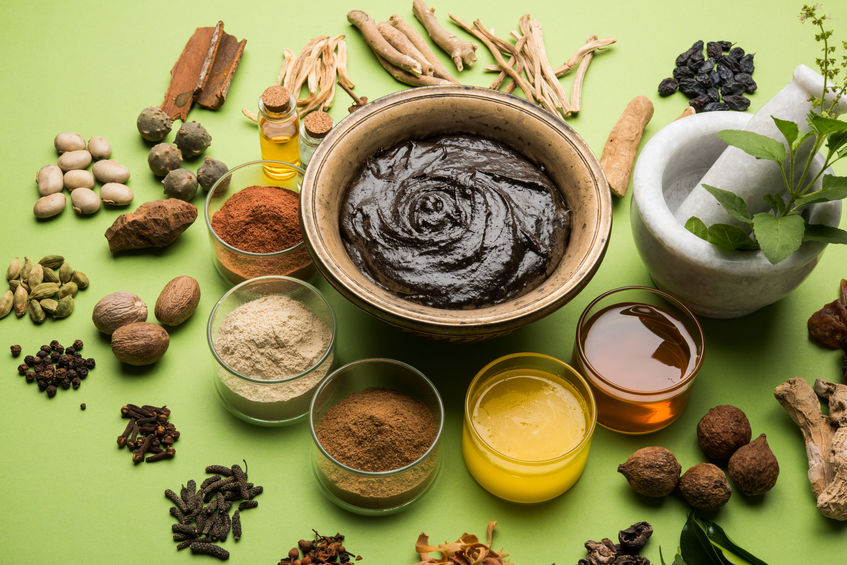
How To Take Care Of Your Voice? A Guide To Good Vocal Health
Posted on April 19, 2017 by astha
The human voice is a remarkable instrument that transcends cultural boundaries and touches the hearts of people worldwide. From enchanting Bollywood melodies to soul-stirring Carnatic renditions, voice plays a central role in numerous music traditions. However, as precious as this gift is, our voices can face challenges and limitations that demand proper care and attention. In this comprehensive blog post, we will delve into the significance of the human voice, explore the experiences of vocal struggles, and provide invaluable tips to maintain good vocal health and enhance your vocal abilities.
Section 1: The Essence of the Human Voice
1.1 Voice: A Medium of Expression
The human voice is not just a mere vocalization; it is a medium of expression that conveys emotions, stories, and messages. Each individual possesses a unique voice that is inherently different from others, and this uniqueness adds a distinct charm to every performance. The power of the voice to connect with listeners on an emotional level is nothing short of magical.
As we marvel at the diversity of voices, we must also ponder the origins of this incredible gift. From ancient times, various cultures recognized the importance of the voice in different aspects of life. In Indian tradition, the power of sound or "Nada" was revered and harnessed for healing, teaching, spiritual evolution, and accomplishments. The recognition of sound's profound impact on human life emphasizes the need to nurture and preserve our vocal instrument.
1.2 An Unforgettable Encounter: The Journey of a Vocalist
The journey of a vocalist is often marked by moments of joy and challenges. Personal anecdotes of vocal struggles can offer valuable lessons to aspiring singers and professionals alike. I had one such encounter by facing major vocal problems during a critical phase of a TV reality show.
I remember a phone conversation with a best friend that led to uncontrollable laughter. Unbeknownst to us, this laughter followed a rigorous two-hour Riyaz (practice session). As the conversation progressed, we suddenly lost our voice, which was an unexpected and harsh reality to confront.

How to take care of your vocal health
The toll of excessive vocal strain, repeated overuse, and improper voice production became evident when I sought consultation from an E.N.T. specialist. Diagnosed with a vocal nodule, I embarked on a journey of recovery with medical intervention, vocal rest, and home remedies. The recovery process spanned two years, during which I had to continue performing despite the challenges.
This experience made me realise the importance of timely intervention, proper vocal care, and self-awareness for aspiring singers and professionals to protect their vocal health and preserve their vocal instruments.
Section 2: The Science of a Good Voice: Learning from Natya Shastra
2.1 Natya Shastra: A Timeless Guide to Voice
The Natya Shastra, a classic treatise on performing arts attributed to Bharat Muni in the 5th century B.C., is a treasure trove of knowledge encompassing various aspects of voice and performance. As we explore the qualities of a good voice, Bharat Muni's insights serve as guiding principles for singers and actors.
The Natya Shastra defines five essential qualities of a good voice for singers and actors:
Being well heard (loud enough)
A good voice must have adequate volume and projection to reach the audience effectively.
Being well-tuned and richly textured
A pleasing voice should be in tune, avoiding any pitch inaccuracies, and possess richness in tonal quality.
Being smooth and not harsh
A smooth voice flows effortlessly, captivating listeners without any harshness in its delivery.
Being sweet and harmonious
A sweet voice resonates with the audience, creating an emotional connection and harmonizing with the surrounding musical elements.
Being balanced in all three octaves and registers
A balanced voice demonstrates proficiency in all three octaves and registers, encompassing mandra (low), madhya (medium), and taara (high) notes.
Understanding these qualities can help aspiring vocalists develop a keen ear for their voice and work towards enhancing its attributes.
Section 3: Nurturing Your Vocal Instrument: Practical Tips for Vocal Maintenance
3.1 Treating Your Voice Like Your Body
In Indian tradition, the human voice is likened to the body itself, referred to as "Gatra-vina" (body lute) in the ancient treatise Nardiya Shiksha by Narad. Just as we prioritize physical health, vocal health should also be a primary concern.
One fundamental aspect of caring for your voice is to know its limitations and capabilities. Every voice has a pitch limit, and understanding this helps in choosing an appropriate key or Sruti for singing. By selecting a comfortable range, singers can avoid vocal strain and achieve a smooth and effortless rendition.
3.2 The Vibratory Experience: Feeling the Music Within You
The process of vocalization involves the generation of sound vibrations, which resonate in different parts of the body. By feeling these vibrations in the throat, chest, stomach, and other regions, singers gain insight into the effect of sound inside their bodies. This heightened awareness allows them to adjust their vocal techniques and improve their overall performance.
Additionally, Bharat Muni's classification of voice registers - chest (uras), throat (kantha), and head (tiros) - corresponds to the mandra, madhya, and taara notes. Understanding the role of these registers during vocalization enables singers to explore the full range of their voices and achieve a balanced, resonant sound.
3.3 Mastering Breath Control for Seamless Singing
Breath control is a fundamental aspect of vocalization that requires more than just the amount of air inhaled before rendition. Managing breath with uniformity throughout the performance is essential for achieving seamless, sustained notes and dynamic control.
To enhance breath control, singers can engage in specific techniques that focus on breath awareness, such as diaphragmatic breathing. By strengthening the diaphragm and regulating the flow of air, vocalists can master the art of breath control and elevate their singing abilities.
3.4 The Riyaz: Your Key to Unlocking Vocal Potential
The term "Riyaz" or "Swara Sadhana" refers to the practice sessions undertaken by singers to overcome vocal limitations and improve their overall vocal abilities. Riyaz involves a systematic approach to voice training and is an indispensable practice for aspiring singers and established professionals alike.
By developing a structured Riyaz routine tailored to their individual needs, vocalists can target specific areas of improvement and gradually expand their vocal range. Persistence, patience, and consistency are essential for successful Riyaz sessions, enabling singers to unlock their vocal potential.
3.5 Setting the Stage for Productive Practice
The key to effective Riyaz is gradual progress and consistent practice. Beginners are encouraged to start with short sessions, such as 15 minutes, and gradually increase the duration each day. This approach allows the vocal cords to acclimatize to the practice routine and respond more favourably over time.
Practising in the morning is often recommended due to the calm, peaceful, and fresh atmosphere. Mornings are conducive to concentration and vocal conditioning, setting the stage for productive practice sessions. Specific techniques, such as "Kharaj Sadhana," cater to the unique requirements of male and female voices, fostering vocal strength and flexibility.
3.6 Maintaining Vocal Health: Avoiding Strain and Ensuring Relaxation
Maintaining vocal health is of paramount importance to every singer. By avoiding excessive pressure on the vocal cords during singing, vocalists can prevent vocal strain and potential damage to their voices. Adopting the right technique in Riyaz ensures that vocal pain or strain does not become a hindrance to vocal growth.
Relaxation exercises for the jaws, lips, tongue, neck, and head are essential pre-Riyaz activities that prepare the vocal instrument for optimal performance. These simple exercises promote vocal flexibility and reduce tension, enhancing the overall vocal experience.
3.7 Recording Sessions for Growth
Recording practice sessions serve as a valuable tool for self-assessment and growth. By reviewing recordings, singers can identify areas for improvement, assess progress, and make necessary adjustments to their techniques. Self-analysis through recordings provides valuable insights and inspires continuous improvement.
3.8 The Culinary Connection: Nourishing Your Voice
Dietary choices can significantly impact vocal health. Vocalists should be mindful of foods that can negatively affect their vocal cords, such as extremely cold or hot items. For individuals with cold allergies, avoiding ice creams, cold water, and cold drinks is advisable to protect vocal health.
Consuming food at a normal temperature is beneficial, as anything ingested passes through the vocal cords and can influence vocal quality. Adequate hydration with warm water is also essential for maintaining vocal health.
3.9 Embracing Silence: The Healing Power of Vocal Rest
After intense practice sessions, giving your voice ample rest is essential for preventing vocal strain and maintaining vocal texture. Vocal rest should also extend to daily life, involving minimizing talking, speaking softly, and avoiding loud laughter or screaming.
Section 4: Home Remedies for Vocal Health
4.1 Gargling: The Time-Tested Solution

Gargling with warm water is a common practice among singers and helps soothe an itchy throat or clear congestion. Gargling just before a performance can act as a catalyst, offering a vocal boost and ensuring clear vocalization.
4.2 Honey: Nature's Elixir for Vocal Smoothness

Honey is renowned for its healing properties and can effectively soothe vocal cords. Consuming a spoonful of honey daily can contribute to a smoother vocal texture and reduce vocal strain.
4.3 Ayurvedic Spices: Healing Your Throat

Ayurvedic spices such as clove, black pepper, and ginger possess therapeutic properties beneficial for the throat. These spices can help soothe an itchy throat and offer relief from minor discomfort. However, moderation is key, as excessive spice consumption can lead to other health issues.
4.4 Individuality Matters: Consultation and Care
It is essential to remember that every individual's body and voice are unique. Home remedies may vary in effectiveness for different individuals, making it crucial to consult a doctor or vocal coach for personalized vocal care. Understanding one's body and voice is the first step towards taking good care of it.
Take Care of Your Vocal Health
Your voice is an extraordinary gift that deserves respect, care, and nurture. By embracing the wisdom of ancient Indian traditions, practising Riyaz app with dedication, and adopting healthy vocal habits, you can unlock the full potential of your voice. Remember that every voice is special and carries a distinct identity, so embrace your uniqueness and sing from the heart. Through this comprehensive guide, we hope you gain valuable insights and embark on a journey of vocal excellence.
Let your voice shine brightly, and may it continue to inspire and uplift not only yourself but also everyone who listens.
Happy singing!
Other Articles of Interest
[wp-faq-schema title='Common Questions on Vocal Health']








